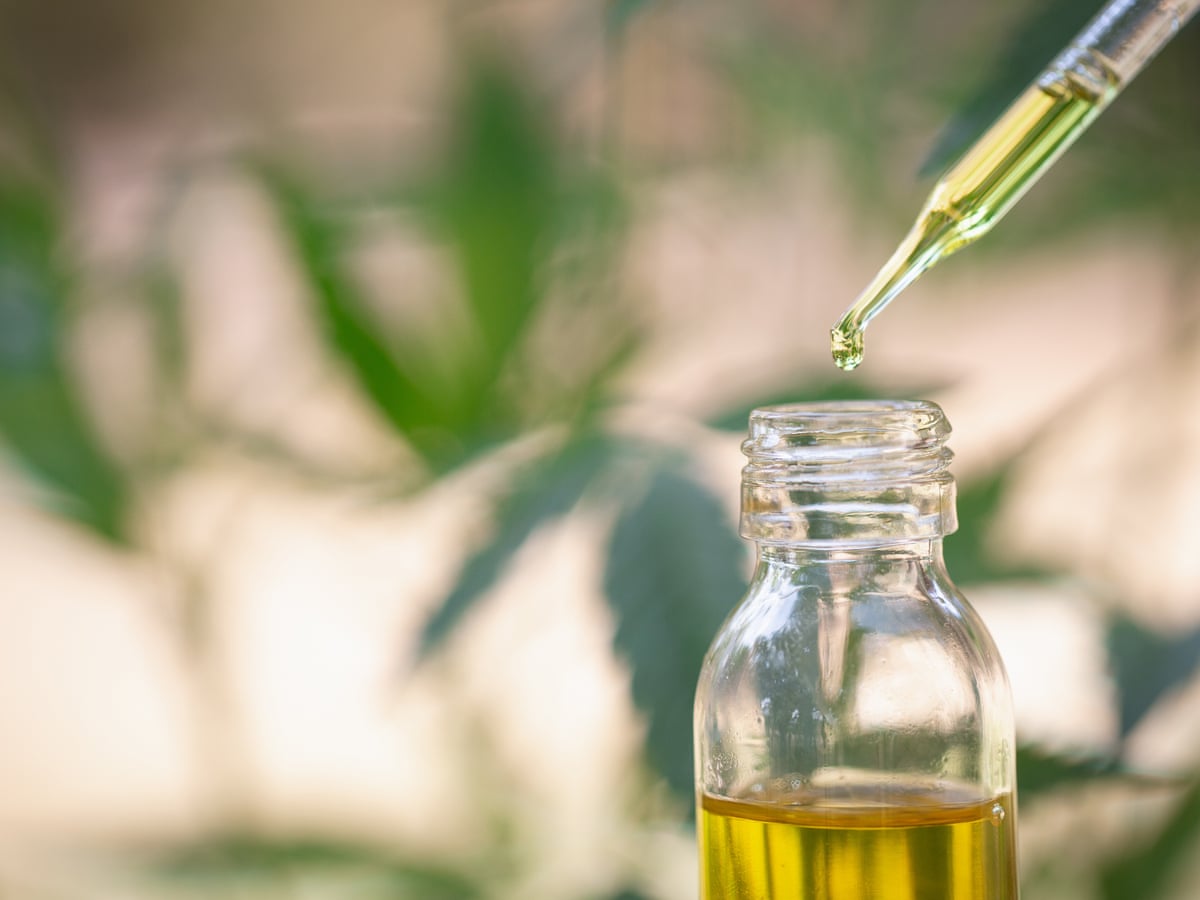A growing number of folks are using CBD oil for depression and some report great results. Animal study shows it gives birth to new brain tissues and increases serotonin activity in the brain. Should we add mood enhancement to the listing of CBD oil advantages? Continue reading to learn.
CBD Oil for Depression: Does It Work?
Though CBD oil is simply approved by the FDA for reducing epileptic seizures, an increasing number of people take CBD oil to other investigational, non-proven uses.
Right after relieving chronic pain and stress, the third most frequent use of CBD oil would be to improve melancholy. In a poll on 1,500 medical CBD users, nearly a third reported suffering from depression. Of these, 62% felt that CBD worked “very well by itself”.
Similarly, from 12,000 medical cannabis users, half perceived cannabis reduced their gastrointestinal symptoms. Here is the interesting part: those smoking CBD-rich varieties were most likely to experience improvement.
These preliminary data indicate that CBD enriches depression. However, what does the science say? Let us look at the research in detail to figure out it.

How Does It Work?
1) Enhances Serotonin Action
CBD activates the 5HT1A receptors for dopamine, popularly known as the”pleasure neurotransmitter”.
In accordance with the “serotonin hypothesis,” low serotonin activity in the brain causes depression. Really, most antidepressant medications increase serotonin. SSRIs, by way of instance, prevent its removal from synapses, the clefts brain cells use to communicate through neurotransmitters.
In mice, CBD worked similarly to antidepressant drugs that block melatonin removal and even improved their effects. It immediately increased serotonin and glutamate amounts in the prefrontal cortex, the brain’s heartbeat for believing and making sense of feelings. 5HT1A blockers prevented these effects, which suggests that activating 5HT1A enhances mood.
CBD oil may improve mood by increasing serotonin activity in your mind.
2) Encourages Natural Endocannabinoids
The endocannabinoid system consists of 2 receptors: CB1 and CB2. The cannabinoids naturally produced within the body, like the”bliss molecule” anandamide, bind to and activate them. Though CBD blocks CB receptors, it increases anandamide by preventing its breakdown.
In animal research, anandamide reduced depressive symptoms by activating both the endocannabinoid and dopamine pathways. Blocking the enzyme which breaks anandamide down (FAAH), which is what CBD does, had the same effect.
CBD oil can improve mood by raising the body’s natural cannabinoid, anandamide.
3) Improving the Birth of New Brain Cells
BDNF is a protein that boosts the birth, growth, and regeneration of cells. People with depression frequently have low levels of the protein at the prefrontal cortex and hippocampus (a heartbeat for memory and feelings).
In depressed mice, CBD increased BDNF and fortified the connections between three brain areas that influence thinking, emotions, and anxiety memory (prefrontal cortex, hippocampus, and amygdala). By comparison, it decreased the animals’ depression.
With time, depression probably shrinks the hippocampus. CBD encouraged the birth of new brain cells neurogenesis from the hippocampus of chronically-stressed mice, which likely increases its mood-enhancing impact.
CBD oil may improve mood by increasing the development of new cells and connections within the brain.
When Does This Work?
Evidence from Animal Studies
CBD (oral, IV) and injected into the mind ) improved disposition in chronically-stressed mice. It worked at both low and high doses, one-time or repeated. The effects were rapid, sustained, and similar to the ones of an antidepressant drug (imipramine).
Similarly, CBD reduced manic behavior in rats with a genetic tendency to depression.
CBD also reduced melancholy — and anxiety, aggressiveness, and antisocial behavior — in mice with neurological pain from brain trauma.
Clinical Research
Depressive Disorders
The positive results from animal research have encouraged clinical trials of CBD in people with depressive disorders. Two clinical trials of CBD as add-on therapy in bipolar disease (one from Brazil and one from Germany) are now underway and expected to end in 2020.
Depression from Bipolar disorders
Persistent pain and stress cause constant strain and discomfort which often leads to depression.
In a small trial, distinct cannabinoid preparations (CBD, THC, and a mix of both) decreased gastrointestinal symptoms in 14 out of 24 people. On the other hand, the combination of CBD and THC functioned better for most people, probably because THC is a more powerful painkiller.
Likewise, medical marijuana enhanced depression and decreased the use of antidepressant drugs in another trial on 11 individuals with chronic pain, anxiety, and sleep disturbances. Unfortunately, this study utilized different strains and did not quantify the CBD and THC amounts of each one.
The evidence to support the benefits of CBD oil in depression due to chronic diseases is clearly inadequate. Further clinical research examining CBD alone is required.
Cannabis can improve mood in people with chronic ailments, but the evidence for CBD oil is not in yet — clinical studies are still underway.
Depression from THC Use
2 meta-analyses of 25 articles related to heavy cannabis usage, particularly during adolescence and young adulthood, with an increased risk of depression and bipolar disorder.
THC appears to be driving this effect. In an observational study on 120 cannabis smokers, those using THC-rich forms suffered from depression more often.
Subsequently, CBD reverts some unwanted effects of THC. In a clinical trial on 20 regular cannabis smokers, oral CBD reduced depression and other psychological symptoms. Additionally, it revived the size of two brain regions damaged by heavy cannabis use and connected with anxiety and depression (hippocampal subiculum and CA1).
Again, the evidence to claim that CBD assists with depression derived from THC abuse are inadequate. Larger, more robust clinical trials should confirm this preliminary finding.
CBD oil can lower the chance of depression in people who frequently smoke THC-rich cannabis breeds, but further study is necessary.
Caveats
So far, only 3 human studies have been completed. Of these, just one tested CBD alone while another two used extracts or cannabis strains combining varying levels of CBD and THC. Animal research with CBD alone is promising, but clinical trials have yet to determine if this chemical is great for depression or not.
CBD Oil Dosage for Depression
Dosage
Because CBD oil is not accepted for depression, there is no official dose for this condition. Users and nutritional supplement manufacturers have created unofficial doses according to their experience.
In the only clinical trial utilizing CBD alone, 200 mg/day taken for 10 weeks decreased depression and other emotional symptoms of heavy THC usage.
Manufacturers and natural health sites recommend starting with a low dose (5-10 mg/day) and gradually increasing it until you attain the desired effects. The right dose depends on factors like your body fat, tolerance to CBD, and a variety of depression.
Significantly, do not utilize CBD oil (or other injectable remedies ) for melancholy without consulting it with your physician beforehand. He or she might evaluate if it might help with your case and help you determine the best dose and delivery method.
How to Use
CBD oil comes in various forms:
- Oil tinctures
- Mouth sprays
- Vaping oil
- Capsules and tablets
- Edibles (gummies and lollipops)
- Teas
Your kind of choice will depend on your type of depression:
- Capsules, edibles, and teas discharge the CBD more slowly but their effects also last longer. They could be preferable for acute, chronic disorders like major or persistent depression.
- Vaping, mouth sprays, and petroleum tinctures are consumed quickly and may be preferable for acute flare-ups or in case of mild, episodic depression (e.g., premenstrual depression).
Greatest CBD Oil for Depression
Reviews
The opinions expressed in this section are solely those of CBD oil users who may or may not have scientific or medical training. Their reviews do not represent the opinions of SelfHacked. SelfHacked doesn’t endorse any specific product, service, or treatment.
Do not believe in user adventures as medical advice. Never delay or disregard seeking professional medical advice from your doctor or other qualified health care provider because of something you have read on SelfHacked. We understand that reading individual, real-life experiences can be a very helpful resource, but it is not a substitute for professional medical advice, diagnosis, or therapy from a qualified healthcare provider.
Industrial CBD oils were normally promoted as multi-purpose products for depression, anxiety, and pain. Most users carrying it for depression were satisfied. Many reported additional benefits for sleep and anxiety. Alternatively, some users took CBD oil mainly for chronic pain or anxiety and reported that it also improved their low mood.
In some cases, the users complained that the oil didn’t work for them. One even experienced mood worsening at high doses. Very few reported side effects like drowsiness, fatigue, and dry mouth. Depending on the brand and kind of supplementation, most negative reviews were due to the high cost, issues with the packaging, poor customer support, and weird taste.
Takeaway
CBD oil may improve mood by increasing serotonin, your”happiness neurotransmitter,” along with anandamide, your natural cannabinoid bliss molecule. CBD can also help the brain grow new neurons and connections, which are usually beneficial for emotional balance and psychological health.
Many people swear by CBD oil for melancholy, but also the clinical evidence to back up its usage is weak.
CBD oil may improve mood in people who regularly smoke cannabis breeds high in THC; it might also help people with stress. On the flip side, people with depression from chronic pain are likely to gain more from THC-containing strains.
Trials investigating pure CBD oil for bipolar disorder are underway.

